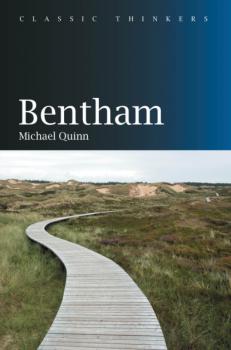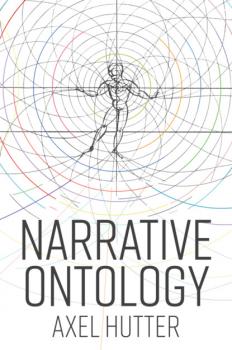Афоризмы и цитаты
Различные книги в жанре Афоризмы и цитатыDenken wagen
Mit seiner «Kritik der reinen Vernunft» hat Kant die Philosophie auf neue Grundlagen gestellt. Aber auch seine kleine Schrift «Beantwortung der Frage: Was ist Aufklärung?» aus dem Jahr 1784 wirkt bis heute nach. Neben dieser Schrift umfasst der Band vier weitere kurze Texte: «Was heißt: Sich im Denken orientieren?»? «Das Ende aller Dinge» (über den Übergang vom Leben zum Tod), «Das Misslingen aller philosophischen Versuche in der Theodizee» (also des Versuches einer Erklärung, warum es Leid auf dieser Welt gibt), sowie «Über ein vermeintes Recht, aus Menschenliebe zu lügen» (ein Recht, das Kant verneint). Fünf Texte, die zu zentralen Fragen des Lebens Orientierung im Denken geben.
Warum Kompromisse schließen?
Ob es um die eigenen Lebensziele geht, um wirtschaftlichen Wettbewerb oder um politisches Handeln: Kompromisslosigkeit gilt weithin als Zeichen der Stärke, als alleiniges Erfolgsrezept. Wer Kompromisse eingeht, gilt dagegen als schwach, als weltfremder Träumer. Auch Biologie und Wirtschaft suggerieren: Der Stärkere siegt. Aber stimmt das? Für den Philosophen und Biologen Andreas Weber sind Kompromisse keineswegs automatisch faul, sondern Grundvoraussetzung für ein gedeihliches Leben aller. Mehr noch: Als Lebewesen haben wir ein natürliches Bedürfnis nach Ausgleich. Kompromisse machen heißt eben nicht, zähneknirschend zweitbeste Lösungen zu akzeptieren, sondern das zu wählen, was mir etwas schenkt, weil ich selbst großzügig bin. So wird die Kunst des Kompromisses zur Lebenskunst, zur Lust daran, diese Welt zu bereichern und miteinander – auf Augenhöhe – ökologisch und politisch zu gestalten.
Bentham
Jeremy Bentham – philosopher, theorist of law and of the art of government – was among the most influential figures of the early nineteenth century, and the approach he pioneered – utilitarianism – remains central to the modern world. In this new introduction to his ideas, Michael Quinn shows how Bentham sought to be an engineer or architect of choices and to illuminate the methods of influencing human conduct to good ends, by focusing on how people react to the various physical, legal, institutional, normative and cultural factors that confront them as decision-makers. Quinn examines how Bentham adopted utility as the critical standard for the development and evaluation of government and public policy, and explains how he sought to apply this principle to a range of areas, from penal law to democratic reform, before concluding with an assessment of his contemporary relevance. He argues that Bentham simultaneously sought both to facilitate the implementation of governmental will and to expose misrule by rendering all exercises of public power transparent to the public on whose behalf it was exercised. This book will be essential reading for any student or scholar of Bentham, as well as those interested in the history of political thought, philosophy, politics, ethics and utilitarianism.
The Time of Revolt
As capitalism triumphs on the ruins of utopias and faith in progress fades, revolts are breaking out everywhere. From London to Hong Kong and from Buenos Aires to Beirut, protests flare up, in some cases spreading like wildfire, in other cases petering out and reigniting elsewhere. Not even the pandemic has been able to stop them: as many were reflecting on the loss of public space, the fuse of a fresh explosion was lit in Minneapolis with the brutal murder of George Floyd. We are living in an age of revolt. But what is revolt? It would be a mistake to think of it as simply an explosion of anger, a spontaneous and irrational outburst, as it is often portrayed in the media. Exploding anger is not a bolt from the blue but a symptom of a social order in which the sovereignty of the state has imposed itself as the sole condition of order. Revolt challenges the sovereignty of the state, whether it is democratic or despotic, exposing the violence that underpins it. Revolt upsets the agenda of power, interrupts time, throws history into disarray. The time of revolt, discontinuous and intermittent, is also a revolt of time, an anarchic transition to a space of time that disengages itself from the architecture of politics. This brilliant reflection on the nature and significance of revolt will be of interest to students of politics and philosophy and to anyone concerned with the key questions of politics today.
Reading Hegel
A spirit is haunting contemporary thought – the spirit of Hegel. All the powers of academia have entered into a holy alliance to exorcize this spirit: Vitalists and Eschatologists, Transcendental Pragmatists and Speculative Realists, Historical Materialists and even ‘liberal Hegelians’. Which of these groups has not been denounced as metaphysically Hegelian by its opponents? And which has not hurled back the branding reproach of Hegelian metaphysics in its turn? Progressives, liberals and reactionaries alike receive this condemnation. In light of this situation, it is high time that true Hegelians should openly admit their allegiance and, without obfuscation, express the importance and validity of Hegelianism to the contemporary intellectual scene. To this end, a small group of Hegelians of different nationalities have assembled to sketch the following book – a book which addresses a number of pressing issues that a contemporary reading of Hegel allows a new perspective on: our relation to the future, our relation to nature and our relation to the absolute.









